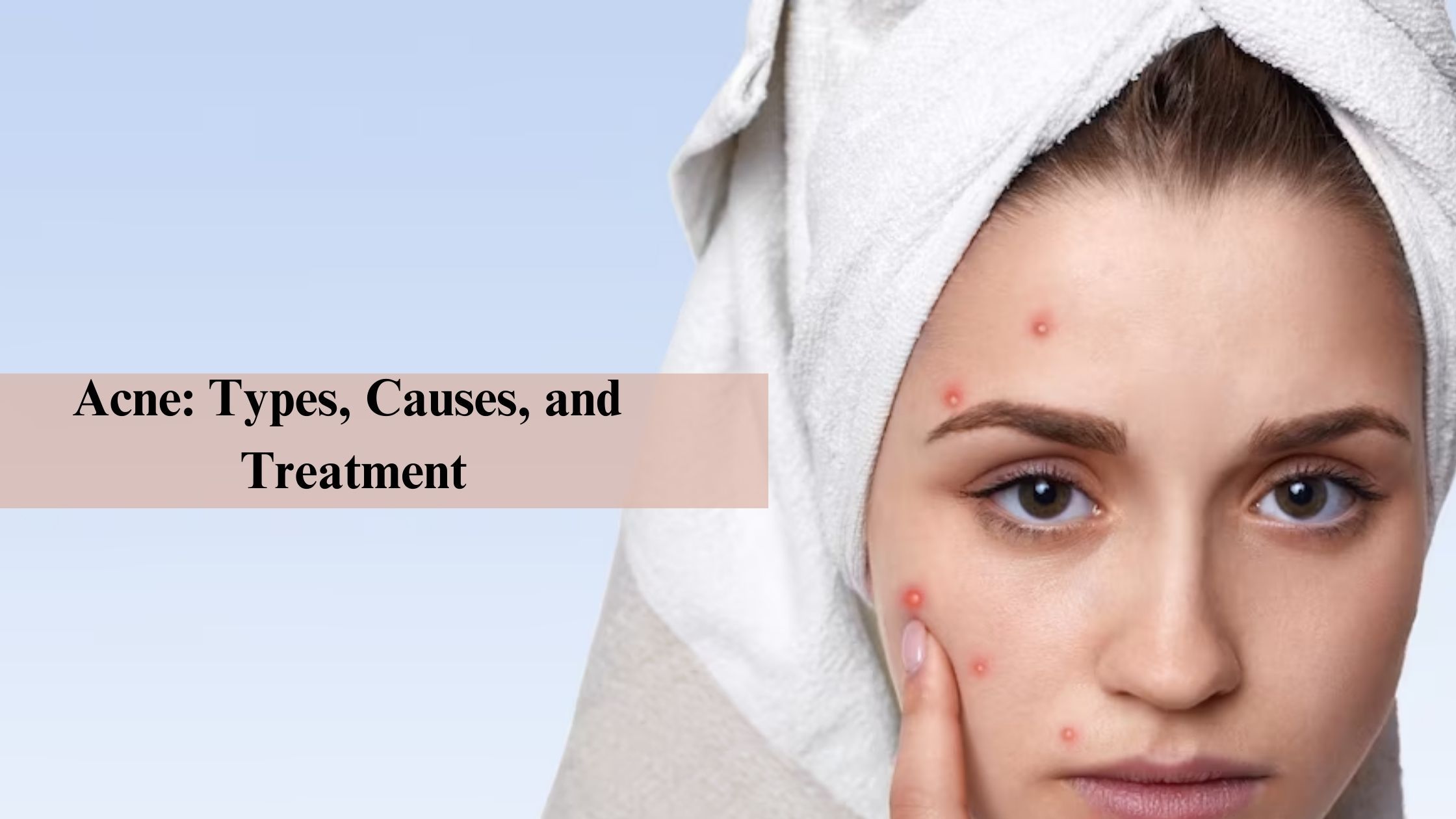Acne: Types, Causes, and Treatment

Acne is a common skin condition that affects millions of people worldwide, regardless of age, gender, or ethnicity. While it's often associated with teenagers going through puberty, acne can affect individuals of all ages. Understanding the different types, causes, and available treatments is crucial for effectively managing and preventing this often frustrating skin issue.
Types of Acne
Acne comes in various forms, and each type can present unique challenges when it comes to treatment. The most common types of acne include:
1. Comedones - Comedones are non-inflammatory acne lesions that are classified into two categories: open comedones (blackheads) and closed comedones (whiteheads). Blackheads appear when a hair follicle's opening becomes clogged with sebum and dead skin cells, while whiteheads occur when the follicle is completely blocked.
2. Papules- Papules are small, red bumps that form when the walls of hair follicles break due to excess oil and bacteria. These can be tender to the touch and may become pustules if they fill with pus.
3. Pustules- Pustules are similar to papules but filled with pus, giving them a white or yellow appearance at the center. They are often surrounded by red, inflamed skin and can be painful.
4. Nodules- Nodules are larger, painful, solid lumps beneath the skin's surface. They develop when clogged pores lead to deeper inflammation, and they can persist for weeks or even months.
5. Cysts- Cysts are the most severe form of acne and result from deep, painful infections. These large, pus-filled lesions can cause scarring and may require medical intervention.
Causes of Acne
Understanding the underlying causes of acne is essential for effective prevention and treatment. The development of acne is primarily attributed to the following factors:
1. Excess Sebum Production- Sebum is an oily substance produced by the sebaceous glands. Excess sebum can clog hair follicles, leading to the formation of acne.
2. Dead Skin Cell Accumulation- The shedding of dead skin cells is a natural process, but when these cells do not shed properly and accumulate on the skin's surface, they can mix with sebum and clog pores.
3. Bacterial Infection- Propionibacterium acnes (P. acnes) is a type of bacteria that resides on the skin. When P. acnes multiply in clogged hair follicles, they can trigger inflammation and acne breakouts.
4. Hormonal Changes- Hormonal fluctuations, such as those during puberty, menstruation, pregnancy, and menopause, can increase sebum production and make individuals more prone to acne.
5. Diet and Lifestyle- Certain dietary choices, like consuming high-glycemic foods and dairy products, can contribute to acne in some individuals. Stress, lack of sleep, and inadequate skincare routines can also worsen the condition.
Treatment Options
Effective acne management involves a combination of lifestyle changes, skincare practices, and, in some cases, medical interventions. Here are some common treatment options:
1. Topical Treatments- Over-the-counter (OTC) and prescription topical treatments, such as benzoyl peroxide, salicylic acid, and retinoids, can help unclog pores and reduce inflammation.
2. Oral Medications- For more severe cases, healthcare professionals may prescribe oral antibiotics, birth control pills (for hormonal acne in females), or isotretinoin, a powerful medication used in severe cases of cystic acne.
3. Lifestyle Changes- Adopting a healthy lifestyle can improve skin health. This includes maintaining a balanced diet, staying hydrated, managing stress, getting adequate sleep, and avoiding tobacco and excessive alcohol consumption.
4. Professional Treatments - Dermatologists offer various in-office treatments like chemical peels, microdermabrasion, laser therapy, and extractions to treat and prevent acne.
5. Preventive Measures- Regularly cleansing the skin, avoiding excessive touching or picking of acne lesions, and using non-comedogenic skincare products can help prevent acne.
In conclusion
Acne is a common skin condition with various types, causes, and treatment options. Finding the most effective approach often requires trial and error, as what works for one person may not work for another. Consulting a dermatologist is crucial for developing a personalized treatment plan that addresses individual needs and concerns. With the right strategies and patience, most people can effectively manage and reduce the impact of acne on their skin and overall well-being.
A general healthcare provider or a dermatologist can diagnose and treat acne. If you have stubborn acne that doesn’t improve with treatment, a dermatologist can help. Jeevan Rekha Hospital is one of the best Dermatology hospital in Jaipur.
Appreciate the creator